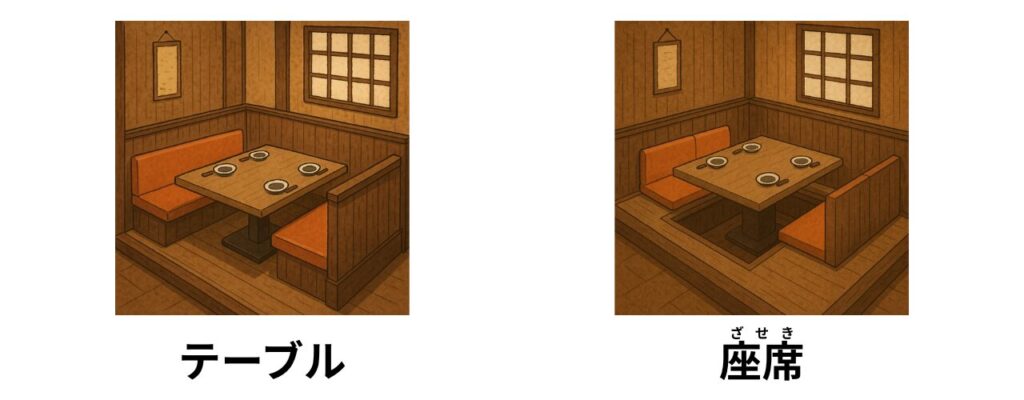Contents
🇯🇵 Understanding the Culture of Reservations in Japan
🔹 Overview
In Japan, making a reservation (予約 / yoyaku) is a very common and important part of daily life, especially in business, hospitality, and healthcare. Punctuality, politeness, and respect for others' time are deeply rooted in Japanese culture, so reservations are taken seriously and usually followed precisely.
🏨 Where Reservations Are Common
Here are some places where reservations are often expected or required:
| Type | Reservation Needed? |
|---|---|
| Restaurants (esp. fine dining, popular places) | ✅ Yes, often required |
| Hotels / Ryokan | ✅ Yes, often required |
| Hair salons / Barbers | ✅ Yes (walk-ins possible but not guaranteed) |
| Hospitals / Clinics | ✅ Often required |
| Events / Exhibitions | ✅ Usually recommended |
| Cultural experiences (tea ceremony, kimono rental, etc.) | ✅ Recommended |
| Theme parks | 🟡 Sometimes (e.g., restaurants or express passes) |
| Public transport | 🟡 Optional (for reserved seats) |
🕒 Punctuality Matters
- Being on time is crucial.
In Japan, it is considered rude to be late for a reservation—even by 5 minutes. - If you're running late, calling ahead is appreciated and shows respect.
🧾 How to Make a Reservation
You can make reservations:
- By phone
- Through websites or booking apps
- In person (especially at places like salons or clinics)
- Using convenience store terminals (for events or travel)
Most places will ask:
- Your name
- Date and time of reservation
- Number of people
- Service or menu type (sometimes)
📞 Common Phrases You'll Hear
- 「ご予約のお名前は?」(Go-yoyaku no onamae wa?) – What name is the reservation under?
- 「何名様ですか?」(Nan-mei sama desu ka?) – How many people?
- 「何時にされますか?」(Nanji ni saremasu ka?) – What time would you like?
🙇 Cancellation & No-Show Etiquette
- Cancelling a reservation should be done as early as possible, preferably by phone.
- Being a no-show (not showing up without notice) is considered very disrespectful, and some restaurants may refuse future service if this happens.
- For high-end places, especially omakase or kaiseki restaurants, cancellations may require a fee if done too late.
💡 Cultural Points to Remember
- Politeness is key – always speak with respect when making or canceling a reservation.
- Honor the time – Japanese society values efficiency and punctuality.
- Don’t overbook – making multiple reservations at different places “just in case” is frowned upon.
- Face masks and hygiene – especially in clinics or salons, hygiene and personal care are expected.
🧠 Why Reservations Are So Common
- To avoid wasting time (queues are less acceptable than in other countries)
- To ensure proper service and preparation
- Because many places, especially traditional ones, may only serve a limited number of guests per day
- It’s part of the broader culture of consideration and orderliness
ホテルの予約(Hotel Reservation)

Anata (Customer):
- 予約をお願いします。 Yoyaku wo onegaishimasu.
(I'd like to make a reservation.) - 予約をしたいです。Yoyaku wo shitaidesu.
(I want to make a reservation.)

Staff:
- ご希望のお日にちを伺ってもよろしいですか?
gokibouno ohinichiwo ukagattemo yoroshii desuka?
(May I ask what date you would like?)

Anata:
- 7月25日から27日までです。
Shichi-gatsu nijuu-go nichi kara nijuu-nana nichi made desu.
(From July 25th to 27th.)
Staff:
- 何名様ですか? Nanmei-sama desu ka?
(How many people?)
Anata:
- 二人です。Futari desu.
(Two people.)

Staff:
- おタバコは吸われますか?Otabakowa suwaremasuka?
(Do you smoke?)
Anata:
- 吸います / 吸いません suimasu / suimasen
(I smoke. / I don't smoke)
Japanese hotels have both smoking and non-smoking rooms.
🍽️ レストランの予約(Restaurant Reservation)

Anata:
- 今日の夜は予約できますか?Kyou no yoru wa yoyaku dekimasu ka?
(Can I make a reservation for tonight?)

Staff:
- はい。お時間はお決まりでしょうか?Hai, ojikanwa okimari desyouka?
(Sure, what time?)
Anata:
- 午後6時半でお願いします。Gogo roku-ji han de onegaishimasu.
(6:30 PM, please.)
Staff:
- 何名様ですか?Nanmei-sama desu ka?
(How many people?)
Anata:
- 四人です。Yonin desu.
(Four people.)

Staff:
- テーブルとお座席、どちらがよろしいですか?
te-buru to za-seki dochira ga yoroshii desu ka?
(Table or floor seating?)
Anata:
- テーブルでお願いします。Te-buru de onegaishimasu.
(Table, please.)
🏥 病院の予約(Clinic or Hospital Reservation)

Anata:
- 検査の予約をしたいのですが。Kensa no yoyaku wo shitai no desu ga.
(I’d like to make an appointment for a check-up.)

Staff:
- 少々お待ちください。いつがご希望ですか?Shoushou omachi kudasai... itsu ga go-kibou desu ka?
(One moment... What date and time do you prefer?)
Anata:
- 明日の午後は空いていますか?Ashita no gogo wa aiteimasu ka?
(Do you have availability tomorrow afternoon?)
Staff:
- はい。3時から空いています。Hai, san-ji kara aiteimasu.
(Yes, we’re available from 3 PM.)
Anata:
- よろしくお願いします。yoroshiku onegaishimasu.
(Please.)
✂️ 美容室の予約(Hair Salon Reservation)

Anata:
- 金曜日の午後、カットとシャンプーの予約をお願いします。
Kinyoubi no gogo, katto to shampoo no yoyaku wo onegaishimasu.
(I’d like to book a haircut and shampoo for Friday afternoon.)
Staff:
- はい。何時ごろがご希望ですか?
Hai, nanji goro ga gokibou desu ka?
(What time would you like?)
Anata:
- 3時半ごろでお願いします。
San-ji han gorode onegaishimasu.
(About 3:30 PM, please.)

Staff:
- はい。お名前をお伺いしてもよろしいでしょうか。
Hai, onamaewo oukagaishitemo yoroshiidesyouka?
(Got it. May I have your name?)
Anata:
- [なまえ]です[Name] desu.
(I am [Name].)
📞 電話での予約フレーズ(Phrases for Phone Reservations)
- もしもし。[店/ホテル]です。Moshi moshi, [shop/hotel] desu.
(Hello, this is [shop/hotel].) - 予約したいのですが... Yoyaku shitai no desu ga...
(I’d like to make a reservation...) - 空いている日はありますか?Aiteiru hi wa arimasu ka?
(Do you have any available dates?) - いつが空いていますか? Itsu ga aiteimasu ka?
(When is it available?) - 分かりました。それでお願いします。Wakarimashita. Sore de onegaishimasu.
(I see. That one, please.)
🧾 よく使う単語・フレーズまとめ
| 日本語(Romaaji) | 意味(English) |
|---|---|
| 予約 Yoyaku | Reservation |
| 空いています Aiteimasu | Available |
| 何名様 Nanmei-sama | How many people |
| いつですか? Itsu desu ka? | When is it? |
| テーブル Te-buru | Table |
| カット Katto | Haircut |
| ご予約ありがとうございます Go-yoyaku arigatou gozaimasu | Thank you for your reservation |
| ご希望 Gokibou | Your preference |